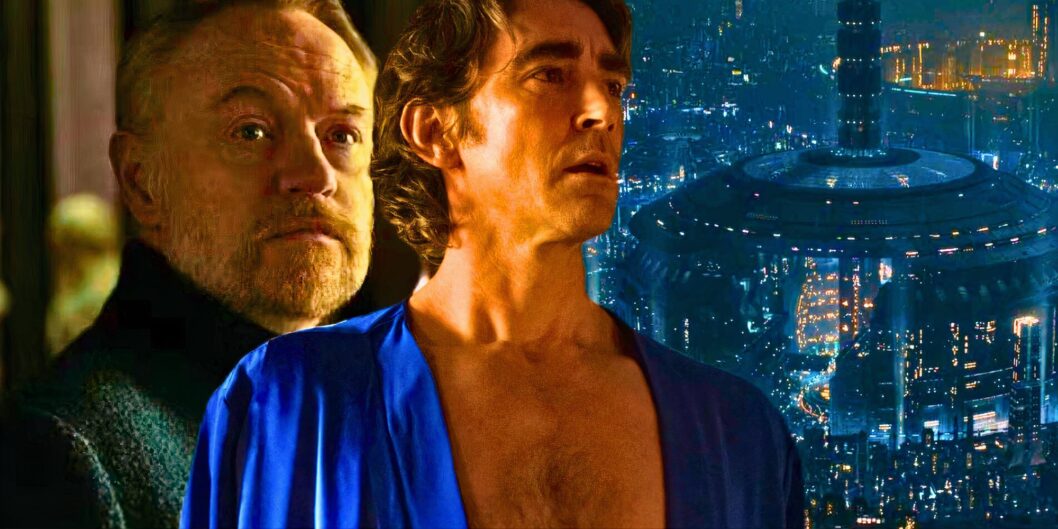Apple TV+’s Foundation: A Bold Adaptation of Asimov’s Classic Sci-Fi Series
Apple TV+ has embarked on a groundbreaking journey with its adaptation of Isaac Asimov’s Foundation, a classic space opera that has captivated readers since its inception. Regarded as one of the most ambitious attempts to translate complex literary narratives into a television format, the series has sparked discussions about its significant deviations from the source material. As Season 3 approaches, it is clear that these changes have played a crucial role in the show’s success.
Transformative Changes for Narrative Clarity
One of the most notable adjustments across the Foundation series is the alteration of the timeline and narrative structure. Asimov’s Foundation spans thousands of years, creating a generational narrative filled with extensive lore. However, adapting such a sprawling timeline for television posed challenges that could have alienated viewers. In response, Apple TV+ opted to create a more fluid narrative, allowing events to unfold in a manner that is easier to digest for a contemporary audience.
The show starts with the critical point of Hari Seldon (played by Jared Harris) establishing the first Foundation. This pivot offers a familiar anchor to fans of the books while propelling the story forward at a pace better suited for serial storytelling. As a result, viewers do not face the “glacial” pacing found in some sections of the books, which could detract from viewer engagement in a television format.
Honoring the Source Material, Yet Making Necessary Adaptations
While many core elements from Asimov’s universe remain intact, the series has creatively decided that not every detail from the novels should be directly translated to screen. As Apple TV+’s showrunner, David S. Goyer, acknowledged, some aspects of Asimov’s vision seemed outdated compared to current scientific advancements. The narrative choices reflect a conscious effort to maintain the essence of the original story while making it relevant to modern viewers.
"Some parts of what the author thought wouldn’t be possible for 50,000 years are now very easy to accomplish in the 21st century," said Goyer. This candid acknowledgment highlights the need to adapt Asimov’s predictions to fit today’s technological landscape, enhancing the relatability and appeal of the series.
Original Concepts That Enrich the Narrative
Notably, the adaptation has introduced several original concepts that resonate with fans and have become pivotal to the show’s appeal. One such addition is the "Clone Dynasty," which presents the characters Cleon I and Cleon II as part of a lineage of clones—an element that was minimally explored in the novels. This intriguing twist adds layers to the narrative and expands character depth, enhancing the overall storytelling experience.
Interestingly, the adaptation allows Jared Harris to portray multiple iterations of Hari Seldon, a decision that contrasts with the original text where the character meets a stark end at a crucial juncture. This creative liberty has been met with positive responses, adding intrigue to Seldon’s role in the unfolding cosmic saga.
Looking Ahead: The Future of Foundation
As Season 3 draws near, the show’s trajectory suggests a continuation of its innovative approach. With extensive changes already embedded in the narrative, it would seem counterproductive for Apple TV+ to revert to a strictly faithful adaptation of the books.
“The show has taken on a life of its own," the showrunner commented, indicating a strong commitment to following the adapted path that has proven successful. As a result, the narrative will likely remain both fresh and engaging, appealing to both dedicated fans of Asimov’s original work and new viewers alike.
The Significance of the Adaptation
The adaptation of Foundation signifies a pivotal moment for science fiction television, illustrating how classic literature can be reimagined for contemporary audiences. Apple TV+’s willingness to deviate from the original plot has demonstrated that successful adaptations do not require rigid adherence to source material. Rather, they can thrive through innovation, creativity, and an understanding of modern storytelling dynamics.
In conclusion, Foundation has established itself as a significant player in the realm of science fiction series, with its expansive universe and exciting narrative choices paving the way for future adaptations of literary classics. The anticipation for Season 3 reflects not only the show’s popularity but the broader acceptance of transformative adaptations in contemporary media. Foundation can be streamed on Apple TV+, where its ambitious storytelling and visual effects continue to impress audiences worldwide.









